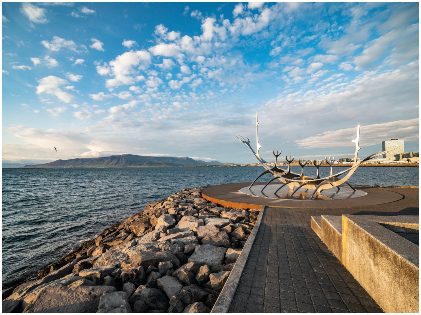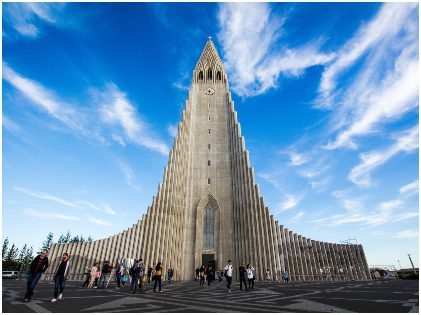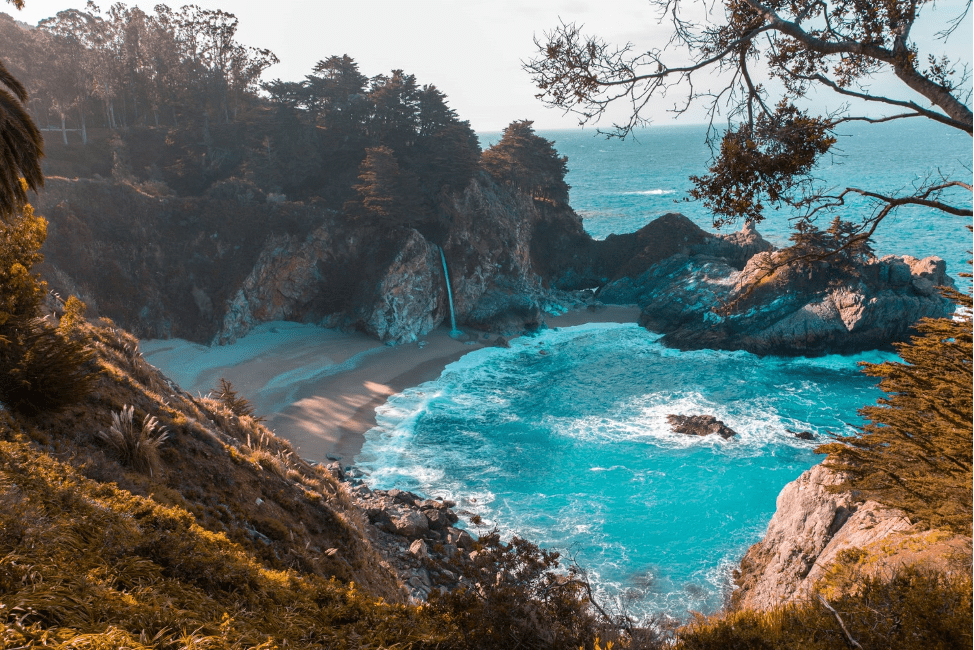 Traveling to different countries can be exciting. Not only do you get to explore several cultures and meet people from different walks of life. However, traveling is not all about fun. You also need to show a fair deal of responsibility. It’s important to protect the environment as much as you travel. If cities turn greener and more sustainable, you need to brush your act and make your travel game more sustainable.
Traveling to different countries can be exciting. Not only do you get to explore several cultures and meet people from different walks of life. However, traveling is not all about fun. You also need to show a fair deal of responsibility. It’s important to protect the environment as much as you travel. If cities turn greener and more sustainable, you need to brush your act and make your travel game more sustainable.
The City of Reykjavik, Iceland, proudly declares that its carbon footprint is among the lowest in a high-income country. Yes, the nation lives on geothermal energy and hydropower. It is because central geothermal heating is available in every house. Besides that, all the electricity production is 100% renewable.
Reykjavik still has a huge task on its hands as it is trying to fight climate change. Reykjavik has also set a goal of being carbon neutral by 2040. The next decade will be highly crucial to the city and the rest of the world to fight against climate change and ecological degradation. The Paris Agreement suggests that the emissions in Reykjavik must be halved by 2030 and then halved again in the following decade. It is also important to achieve carbon capture to evolve as a sustainable city. Here is how the city is trying to cater to the sustainability goals.
Connected Homes

In the technological world that we live in, internet connectivity is the key. However, internet connectivity is not always a healthy option for the planet, so countries moving towards a greener nation are opting for fiber net and broadband, which are more sustainable. Presently Reykjavik Fibre Network, one of the world’s most advanced and True Open Access Fibre Networks. With 100 percent connectivity, Fibre to the Home (FTTH) in the city, they plan on spreading its connectivity across different cities to make the nation connected to eco-conscious internet.
The average Internet speed worldwide is around 3.5 megabits per second, with some developed countries reaching almost ten megabits per second. This type of impressive network speed in Reykjavik can reach up to 500 megabits per second. It can be put to best use by multiple services and providers in tandem with a different voice and television providers.
Sustainable Transportation
Straetó is one of the best transportation apps, with over 85,000 downloads. It seems quite a large amount come to think of it, since the city’s population stands at 330,000. Besides helping citizens use local transport, it also seamlessly helps tourists navigate the city with public transport. Besides busses, Reykjavik also has an effective car-sharing service partnering with Zipcar and ON Power.
Reykjavik University and The National University Hospital of Iceland are the locations with the first access point installations. Reykjavik’s energy company harnesses geothermal energy for almost half of the country’s population. It also boasts of a fleet that includes electric vehicles, for example, Nissan’s Leaf EV. This smart island initiative has been tried before on Menorca. The island is banking on renewable energy strategies by partnering with Nissan to launch projects that hope to power 100-per cent electric mobility and energy management.
Government Interaction
 With sustainability on the agenda, the Better Reykjavik website is interactive as citizens can submit ideas on various things, such as school opening times and new playgrounds. Then, the city council discusses the popular ideas to see which are the best ones are to implement. It started almost a decade ago.
With sustainability on the agenda, the Better Reykjavik website is interactive as citizens can submit ideas on various things, such as school opening times and new playgrounds. Then, the city council discusses the popular ideas to see which are the best ones are to implement. It started almost a decade ago.
Sixty percent of citizens have used the forum, and the city had spent $ 1.9 million on development projects, as many as 200 drawing inspiration from citizens’ ideas. With this perfect free, open-source platform, citizens can participate, lending a voice to make a difference in the city. It is serving as a great inspiration model, and Estonia is also following in its wake.
The city is looking into various aspects of the green movement, from improving transportation to making residents feel more connected to the city. Reykjavik is leading the pack in Iceland, making the country more efficient and leading the pack for energy sustainability.
Reykjavik wants to join other cities and help society, businesses, and grassroots organizations take action against climate change. They are not only doing their bit for public health in the city and improving the overall health of the citizens around the world. The world needs action, and Reykjavik is certainly showing the way.




